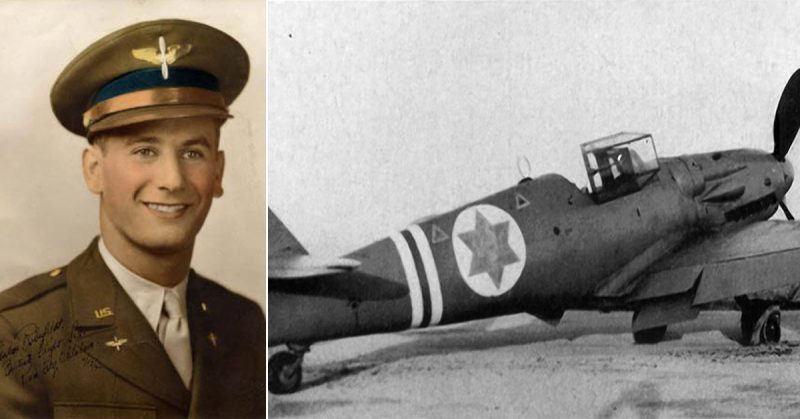American comedian Paul Reubens might be more widely known for the fictional character he embodies, Pee Wee Herman. Reubens owes his worldwide fame to his quirky, childlike comedic persona, and has been present on both the big screen and television since the 1980s.
Reubens’ Emmy Award-winning children’s series, Pee-wee’s Playhouse, enabled him to grow a large fanbase, among children and adults alike.
Even though he is a well-known public figure, both adored and controversial, it remains largely unknown that his father was a WWII pilot ace, who served under three different flags and distinguished himself as a war hero on numerous occasions.
Yes, Pee Wee’s father, Milton Rubenfeld, flew combat mission for both the Royal Air Force and the United States Air Force, before volunteering to fight on the Israeli side during the 1948 Arab-Israeli war.
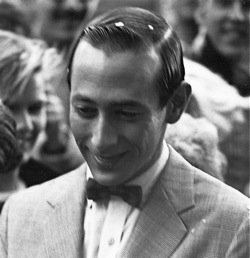
The history of Milton Rubenfeld came to attention after the release of a documentary, titled Above and Beyond in 2015, which focuses on the brave few who decided to use their flying skills in helping Israel defend its newly-founded borders.
Milton was born in 1919 to a Jewish family in the small town of Peekskill, New York. Prior to the war, he was a civilian pilot, who even served as an instructor of aerobatics at one point. As soon as Britain declared war on Germany, he decided to take part in the conflict. The RAF was accepting volunteer pilots from all over the world, as the Battle of Britain raged above the isles.
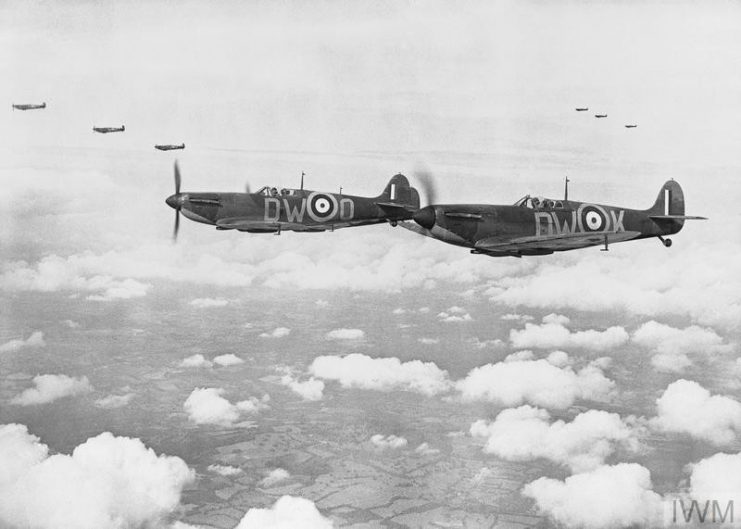
It was there that Milton first experienced combat. Once the United States had joined the war, he was already an experienced fighter pilot with several dogfights stacked around his belt. But it was three years after the war ended that he made his contribution to support the many Holocaust refugees who sought to rebuild the Jewish state of Israel.
In 1948, the Haganah, which was the predecessor of the Israeli Defense Force, had set up an agency in the U.S. in hopes of recruiting experienced pilots to join the Haganah “Air Service.” Milton was approached by Hyman Shechtman, one of Haganah’s chief representatives, and asked if he would help the struggle in Israel.
Milton immediately agreed and very soon he was running transport missions in and out of Israel. To form the basis of the Israeli Air Force, he and several other pilots embarked on a course in Czechoslovakia where they were to train using Avia S-199 aircraft. The Avia was a Czech airplane roughly based on the German Messerschmitt Bf 109, but it featured a flawed design which led many of the applicants to quit the course.
Nevertheless, Rubenfeld, along with four other pilots who all had prior combat experience, managed to pass the test and adjust to the unreliable Czech aircraft.
On May 20, 1948, the five pilots reported to Ekron Air Base (now Tel Nof Airbase) in Israel. As of the declaration of independence of Israel, Milton Rubenfeld, Modi Alon, Ezer Weizman, Lou Lenart, and Eddie Cohen were the only flying staff of the Israeli Air Force. Even though they had five pilots, there were only four Avia fighter planes available, so one pilot had to stay on the ground during each mission.
At the outbreak of the Arab-Israeli war, the existence of this miniature squadron of fighters was kept secret. Their first mission was to attack an Egyptian armored column that was on its way to Tel Aviv.
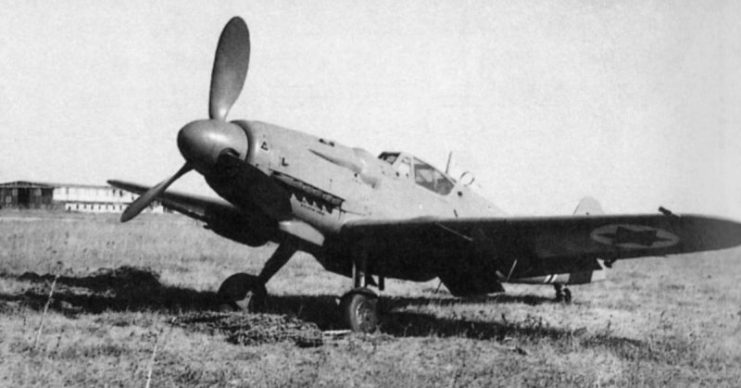
Due to the lack of aircraft, Rubenfeld remained grounded during the first mission but got his chance to fly the day after. The first of the five to die was the South African pilot, Eddie Cohen. It remains unclear whether was he shot down, or his aircraft crashed due to technical issues.
Both Lenart’s and Weizman’s cannons got jammed during the flight. The Avia issue became more urgent than the invasion itself. The aircraft included defects such as the guns being unsynchronized with the propeller, and a tendency to ground loop. Weizman later commented that the main problem with the use of Avia S-199 was “the stress on the pilot. So much went wrong with the aircraft, it was nerve-wracking just climbing into one.”
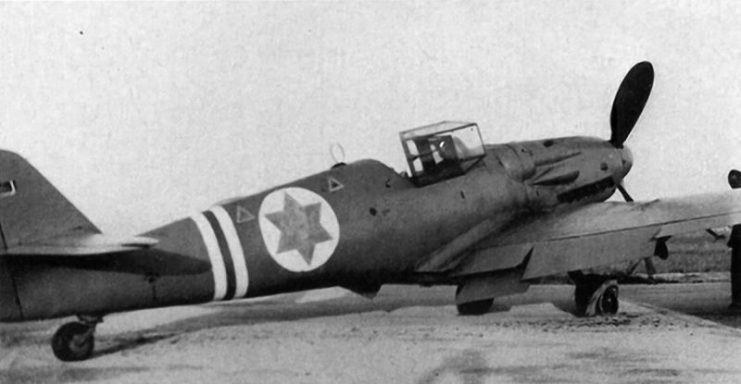
Nevertheless, the mission was successful — their strafing round managed to stop the Egyptian forces, as they feared that the Israeli Air Force might have been much larger than it really was. As for Rubenfeld, he and Weizman flew the only two airworthy planes just 12 hours after the first mission.
They attacked targets near Tulkarm, in the eastern sector of the front, taking out several tanks and armored vehicles. In a dogfight with an Egyptian Spitfire, Rubenfeld’s airplane was damaged. He managed to fly back to Israeli-held territory before bailing out somewhere above the Mediterranean Sea, just next to the settlement of Kfar Vitkin.
Milton crash-landed on the water and tried to swim ashore, but was too dazed and injured to put enough strength into the effort. During the fall he had broken three ribs, had several cuts and suffered an injury to his groin. Just when he was ready to give up, a miracle happened. He simply stood up ― and as he recalled in a later interview, “the water was only up to my knees. I’d been swimming for hours in the water I could have stood up in at any time. I didn’t realize it because I was so far out. The farmers …. were shooting at me as I was coming in out of the water. They thought I was an Arab pilot.”
Since he spoke no Hebrew or Yiddish, he shouted the only thing he knew so that the Israeli farmers would recognize him:
“Shabbos, gefilte fish! Shabbos, gefilte fish!”
It’s the name of a dish usually served for Shabbat. Rubenfeld later changed his statement to a less colorful one, admitting that he had no clear recollection of what he actually said, but that the farmers recognized him nevertheless.
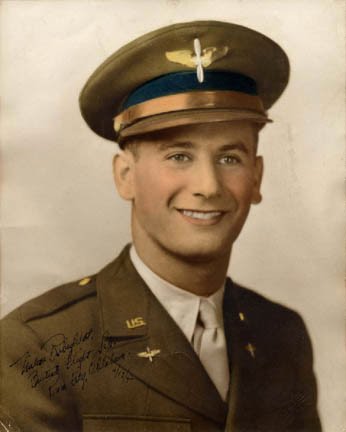
Anyway, the dish story sounded funnier, so it stuck as a local legend. As for the impact that he and the other four pilots made, the Israeli leadership agreed that it was tremendous. With just four planes, Rubenfeld and the others had delayed several offensives and acquired the badly-needed time for the ground forces to prepare and re-organize.
Rubenfeld’s crash also contributed to the defense of Kfar Vitkin, as the farmers managed to salvage a machine gun from the wreckage of his aircraft and use it to protect their village.
